
And where's the explosion going to take place?
If you're White, on the f7 square: if you're Black, on the f2 square!

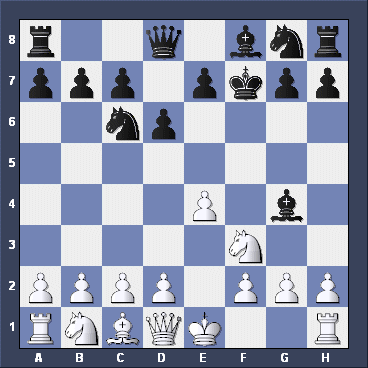
|
Black has nothing better than to take the Bishop, giving this position. Do you see what White can play now?  




|
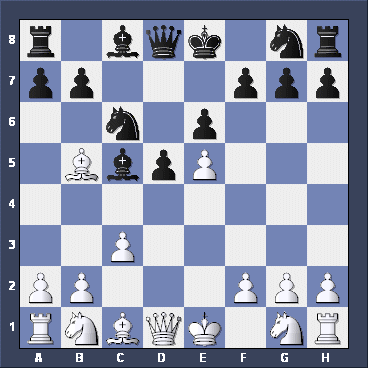
|
See if you can work out the next example for yourself. This time it's Black's move.  




|
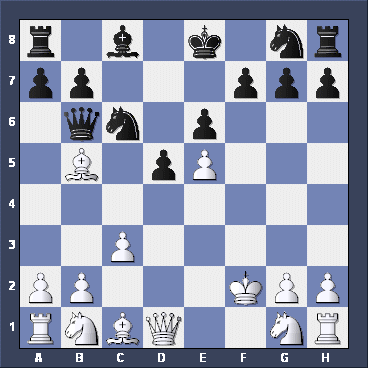
|
And here's the position after the Queen CHECK. This time it's a QUEEN FORK! After White gets out of check Black plays Qb6xb5, with an extra pawn. And White can no longer castle! 
|
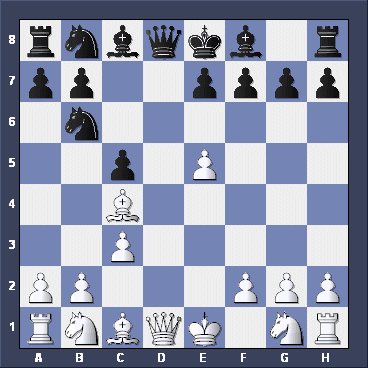
|
 




|
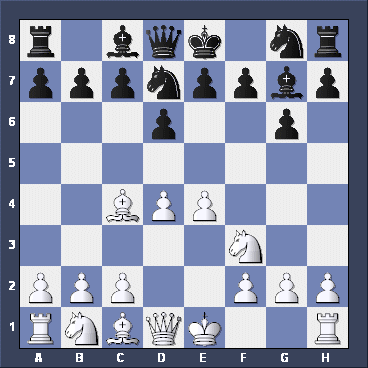
|
Here's another example. Again, you have the White pieces. What's your next move?
 




|
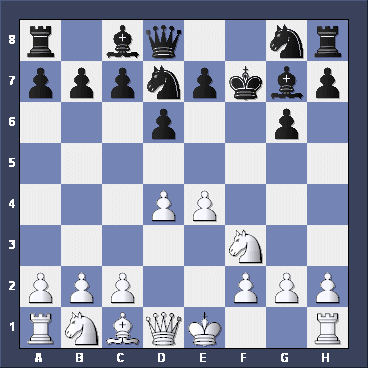
|
Black's best reply was Ke8-f8, but let's suppose he takes the Bishop? Now what?  




|
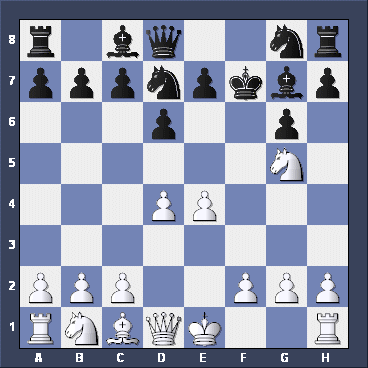
|
Firstly, what would you play against Kf7-f8?
 




|

|
Yes, Ng5-e6 is a KNIGHT FORK, winning the Queen. And if Black goes Kf7-e8 you would play...  




|

|
But if Black moves Kf7-f6 you'll need to do something different. Can you find it?  




|
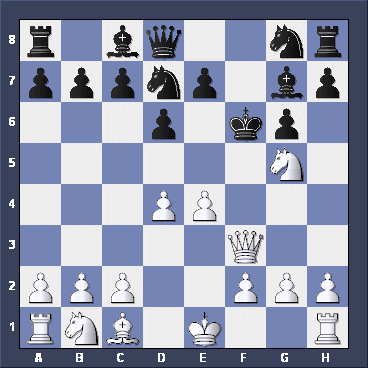
|
There are lots of ways to win, but the move we wanted was Qd1-f3, which is CHECKMATE! If you don't believe me, have a look at the position for yourself and check it out. 
|
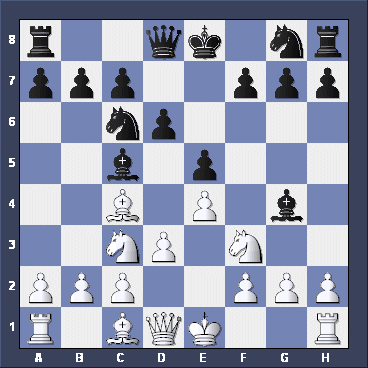
|
It's White's move. What do you think about Bc4xf7+? |
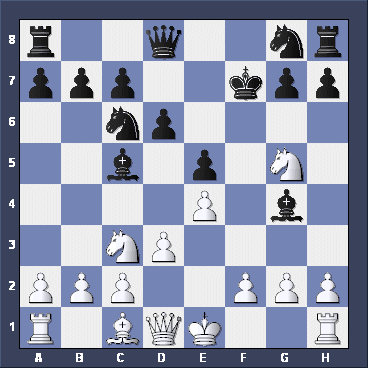
|
It might LOOK like a good move, but in fact it's a mistake. Black takes the Bishop and White must play Nf3-g5+.
How should Black get out of check?
 Kf7-f8 Kf7-f8
 Kf7-e8 Kf7-e8 Kf7-e7 Kf7-e7
 Qd8xg5 Qd8xg5 

|
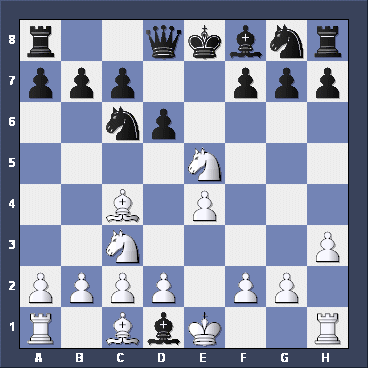
|
White's given up his Queen because he's seen he can get something even bigger in return. How should he start off?  




|
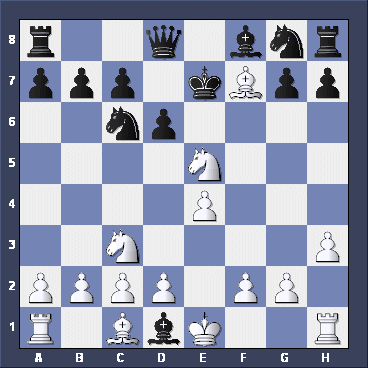
|
That's correct! The bishop check leaves Black with only one move: Ke8-e7. Now you can finish off the Black King with...  




|
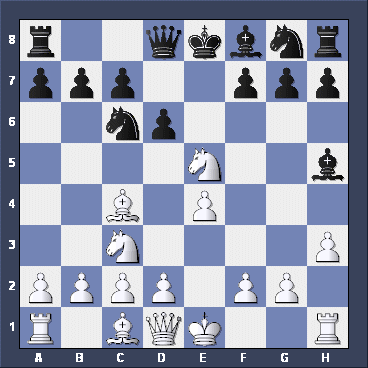
|
First of all, what would you do if he played d6xe5?  




|
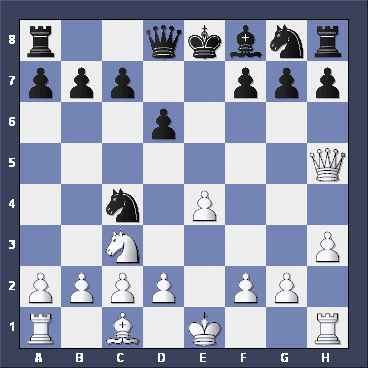
|
Don't forget, in every position look for CHECKS, CAPTURES and THREATS.  




|

|
|